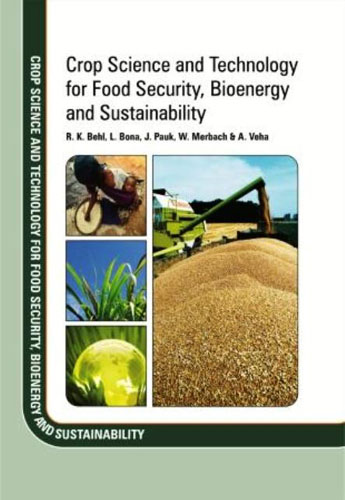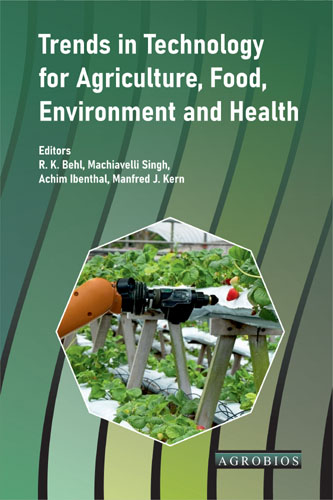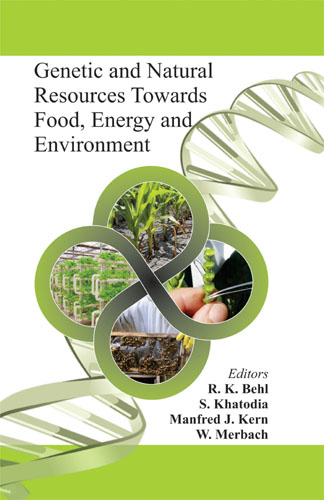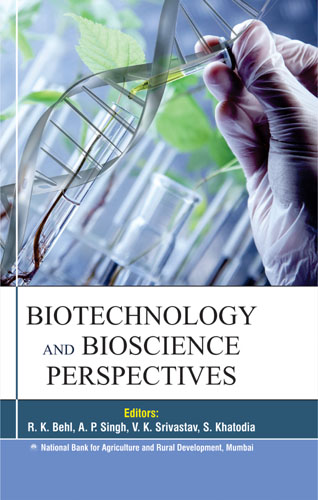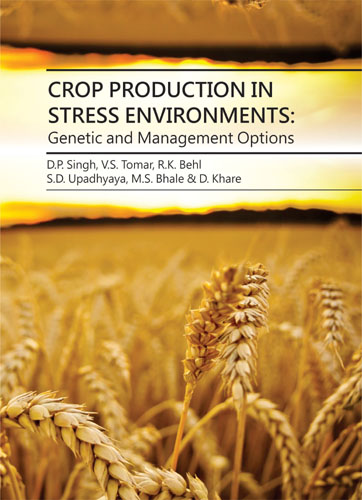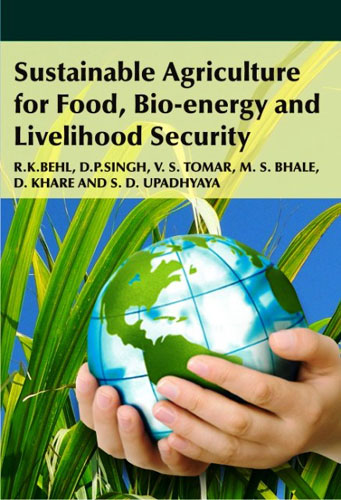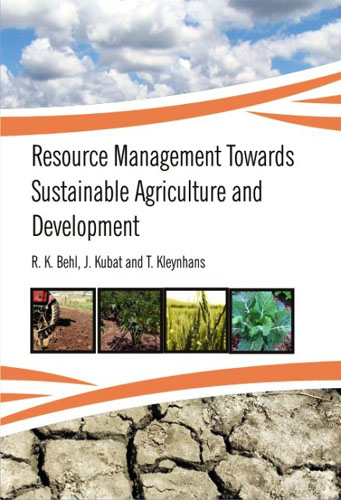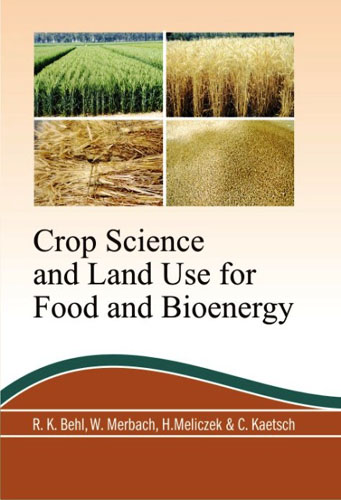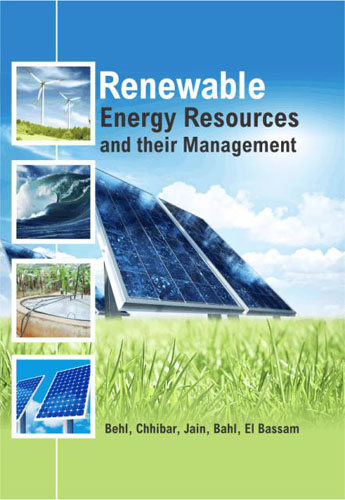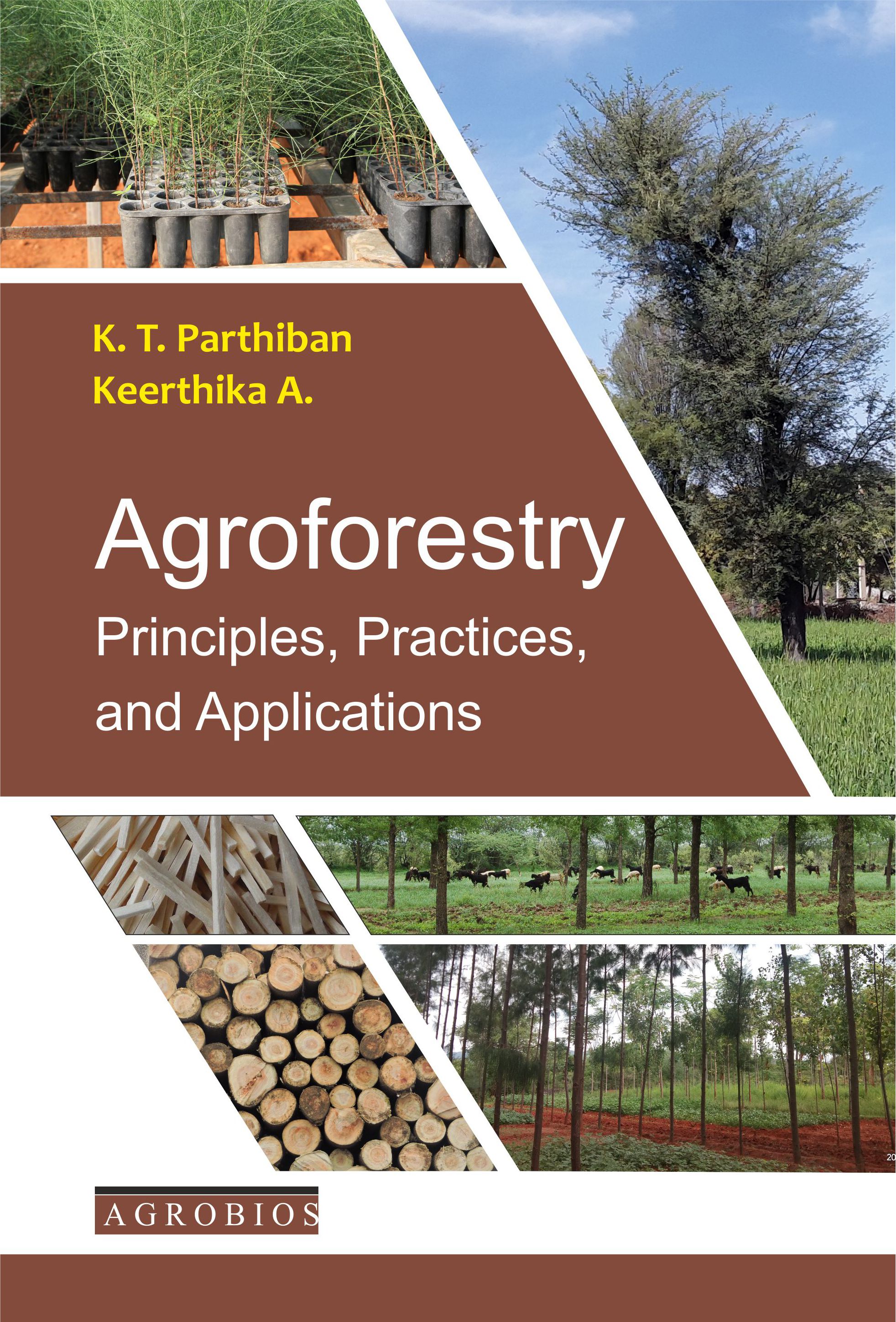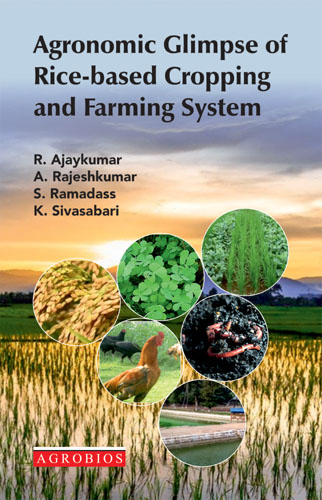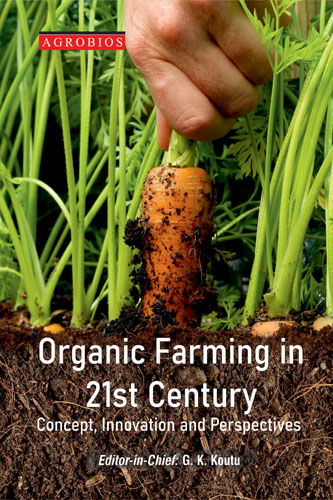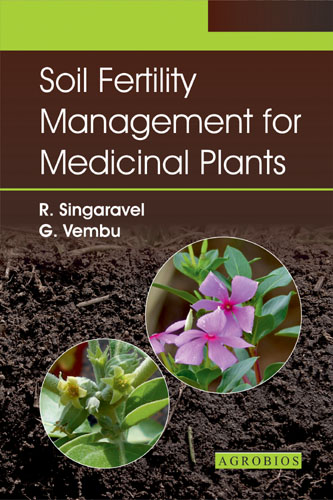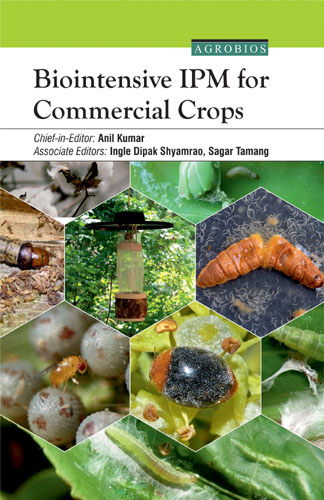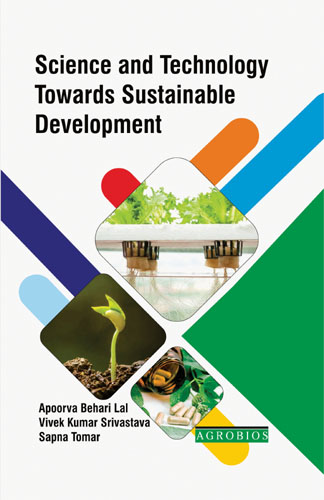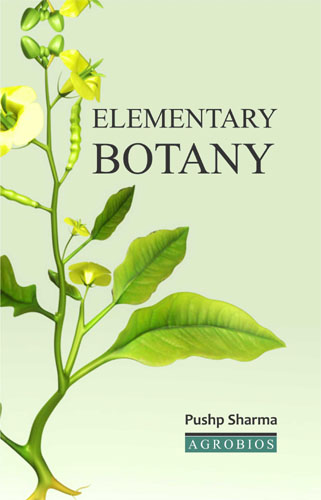Crop Science And Technology For Food Security, Bioenergy And Sustainability
World over, agricultural research and development as well as education are important facets of ensuring enhanced productivity, value addition, bio-energy sustainability, and environmental security. Sustainable development would entail in its objectives that linkages between productivity -sustainability – profitability are harnessed to uplift rural economy and consumers satisfaction and human ecology. Moreover, emerging scenario of agriculture research and market trends would necessitate all concerned to possess strong knowledge base coupled with good practical and management skills.
Crop improvement programmes are no longer in the domain of traditional art of selecting elite lines from populations. Plant breeding and biotechnological tools are useful for creating novel genetic variation in field crops to enhance economic yield, produce quality, input use efficiency and tolerance to abiotic and biotic stresses etc. Precise assessment of genetic variability for potential traits using morphological, physiological, biochemical and molecular indices should often precede actual crop improvement pursuits to enhance the efficiency of selection and to develop crop genotypes for the target ecological environments.
Crop production under intensive cultivation without replacement of soil nutrients mined in large amounts led to negative nutrient balances in soils world over. Decrease in soil fertility and imbalanced nutrient supply are one of the important factors responsible for slower agricultural growth. In many regions of the world, the use of mineral fertilizers is often limited because of economic reasons limiting improved plant production on marginal soils with nutrient deficiencies and/or high nutrient fixing capacities. Much remains to be done to ensure high production in low external input environments.
Also, the agro-technology is to be continuously developed to devise resource conservation technologies, assessment of fertigation and irrigation needs and their application, disease and pest control, add value to the produce for food and feed through processing and to avoid post harvest losses as well biomass production and its conversion into bio-energy.
This book “Crop Science and Technology for Food Security, Bioenergy and Sustainability” brings together a good collection of contributions on various aspects of crop improvement, natural resource management, technology for sustainable development and policy issues and extension. The papers cover wide range of topics from basic to applied aspects. New findings and emerging issues often warrant crop scientists to evaluate and reorient research priorities. This book will serve useful purpose for the researchers and students engaged in crop science and technology alike.
Dr. (Prof.) Behl RK
 555
555
Table of Contents..
VISION
- Indicators of Sustainable Agricultural Land Use
- Sustainable Crop Protection is Concrete Climate Protection-Challenges of Climate Change for Food Security
Crop Improvement
- Efforts in Crop Breeding and Genetics Striving for Sustainability
- An Efficient Biolistic Transformation Method For Transfer of Alfaalfa Aldose- Reductase Gene to Increase Abiotic Stress Tolerance in wheat
- Microspore Culture Improvement Studies in Hexaploid Tritical
- An Efficient Protocol For Large Scale Production and Effect of Various Chemicals and Growth Substances on Micro propagation of Elite Sugarcane Cultivar CoH-119
- Microsatellite Fingerprinting and Pedigree Analyses of Oilseed Rape (Brassica napus L.) Varieties and Hybrids
- Molecular Breeding For Water-Efficient Aerobic Rice
- Bt Cotton: Impacts, Sustainability and Future Prospective
- Advancement of Effectiveness in Winter Wheat (Triticum aestivum L.) and Maize Breeding
- Genetic Improvement of Quality Protein Maize
- Breeding For Heat Tolerance in Bread Wheat in View of Global Warming
- Wheat Improvement for Salt Tolerance
- Manipulating Grain Number, A Key Determinant of Wheat Yield Through Genetic and Molecular Analysis
- Improvement of Winter Wheat (Triticum aestivum L.) Leaf Rust (Puccinia Tritici) Resistance
- Wheat Improvement for Karnal Bunt Resistance
- Assessment of Avena spp. For Mycotoxin Accumulation after Artificial Infection by Fungi Fusarium Culmoirum Sacc
- Distribution of Viruses in Wheat and Resistance of Wheat Varieties Against Them
- Biodiversity of the Genus Trichoderma in Rice Fields of Mazandaran Province, Northern Iran
- Ear Rot Severity and Mycotoxin Accumulation of Non-Inoculated and Inoculated Mid-Late Maize Hybrids after Artifical Infection with One Isolate of Fusarium Verticillioides
- Evaluation of Early and Mid-Early Dent Corn Inbred Lines For The Severity of Fusarium Ear Rot at Two Plant Densities and Under Irrigation in 2007 and 2008
- Relationships Between Glu-1 Score and Quality Parameters of Common Wheat Cultivars
- Correlation between the Quality Parameters of Different Winter Wheat Varieties (Triticum aestivum L.)
- Rheological Parameters of Mixture of Grain Amaranth (Amaranthus Hypochondriacus) and Winter Wheat
- An Eco-Friendly Answer to Micronutrient Deficiencies: Genetic and Agronomic Biofortification
- Variability, Heritability and Correlation Studies for Yield Components and Grain Quality Traits in Recombinant Inbred Lines of Cross CSR10 x HBC19
- Genetic Divergence in Sunflower (Helianthus annuus L.)
- High Adaptability of Sweet Sorghum as a Bio-Fuel and Bio-Remediation Crop in Local Area in Japan
- Evaluation of Different Sweet Sorghum and Sudan Grass Hybrids From the Point of View of Renewable Energy Production
- Corn as a Renewable Energy Source
Natural Resource Management
- Yield and Symbiotic Dinitrogen Fixation of Blue Lupins (Lupinus angustifolius L.) as Affected by Combined Nitrogen and Potassium Supply in Pot Experiments
- Trinity in the Rhizosphere: Interaction among Root, Microorganism, and Soil
- Influence of Arbuscular Mycrrhiza on Physiological Parameters of Tagetes patula L. Grown in Hydroponic Culture
- Vermicomposting for Safe Waste Management and Sustainable Agriculture-A Review
- Grain Yield and Nutrition Uptake of Spring and Winter Barley in Relation of Year and Fertilization
- Importance of Root Antioxidants in Determining Early Plant Responses to P Deficiency in Pigeonpea Genotypes
- Uptake of Zinc Organic Complexes by Roots of Vascular Plants
- Effects of Zn Deficiency on Some Physiological Parameter of Maize and Cucumber Seedlings
- Analytical Studies of French Bean Varieties Produced by Organic and Conventional Farming
- Influence of Planting Methods and Nitrogen on Gaseous Exchange and Yield of Wheat (Triticum aestivum) Under Verying Sowing Environments
- Experiences of Environmental Friendly Fertilization System in Corn Production
- Cultivation of Potato in Bamyan Afghanistan
Crop Diversification in Agriculture-Issues and Actions
- Improvement in Evaluation Methodology of Small Plot Trial Nutrient Supply
- Elimination of Nitrate Pollution of Soil Ground Water By Energy Forest
- Effect of Lead (Pb) and Mercury (Hg) on Plant Growth Promoting Rhizobacterias as Azotobacter Chroococcum and Pseudomonas spp. Using Indian Mustard (Brassical Juncea L.) Test Crop
- Physiological Responses of Corn Seedlings on Treatments with Some Industrial Side-Products
- Irrigation Water Use Impact on the Farms Dynamism and The Management of Cultivation of Cereals in Semi-Arid Area in East Algeria
- Increasing Uncertainty of Winter Wheat and Winter Barley Production and an Indicator Based Analyses of the Possible Reasons
Technology for Sustainable Development
- Life Cycle Analysis of Various Wood Bioelectricity Systems in the Western Cape, South Africa
- Biomass Drying By use of the Experimental Dryer with Solar Collector
- Biogas From Corn Silage
- Ensiling Whole Crop wheat with Biological Inoculant Containing Lactic Acid Bacteria and Enzymes
- Harvesting Silage Maize for Needs of Dairy Cows and/or Needs of Biogas Facilities
- The Influence of Additives and Storage Time on the Aerobic Stability of Sorghum Silages
- Potential of Organic Ginger (Zingiber officinale): its Area, Production, Productivity , Value Addition and Processing in North Eastern Hill Region of India.
- Technological Experiments to Reduce Fusarium Toxin Contamination in Wheat.
- Static Method to Determine the Wheat Kernel Hardness.
- Hyperspectral Remote Sensing- Tools in Monitoring Renewable Green Resources
Policy Issues and Extension
- Policy Issues on Sustainable Agriculture and Rural Development in Georgia
- International Land Acquisition: Land Grab or Development Opportunity?
- Use of Information and Communication Technologies in Rural Settings A Case Study
Table of Contents..
Book Details
Book Title:
Crop Science And Technology For Food Security, Bioenergy And Sustainability
Crop Science And Technology For Food Security, Bioenergy And Sustainability
Book Type:
REFERENCE BOOK
REFERENCE BOOK
No Of Pages:
534
534
Color Pages :
0
0
Color Pages :
0
0
Book Size:
CROWN QUARTO (7.5X10)
CROWN QUARTO (7.5X10)
Weight:
1200 Gms
1200 Gms
Copyright Holder:
All Rights Reserved
All Rights Reserved
Imprint:
AGROBIOS (INTERNATIONAL)
AGROBIOS (INTERNATIONAL)
Readership:
PG STUDENTS | SCIENTISTS AND RESEARCHERS |
PG STUDENTS | SCIENTISTS AND RESEARCHERS |
Associated Subjects:
Agronomy , Sustainable Agriculture , Crop Ecology And Environment , Food Technology , Bioenergy And Biofuel Crops ,
Agronomy , Sustainable Agriculture , Crop Ecology And Environment , Food Technology , Bioenergy And Biofuel Crops ,



